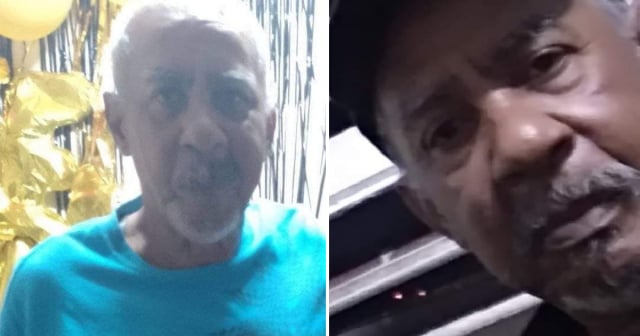A homeless and mentally ill Cuban is forced to wash his head in a puddle of dirty, stagnant water in the heart of El Vedado, in Havana, because he has no home or an institution to support him.
The images were shared by the Cuban Institute for Freedom of Expression and the Press (ICLEP) on its Facebook page. The video is evidence of the abandonment situation in which vulnerable people live on the island, with no access to medical care or support from the regime.
The incident took place on H Street, between Calzada and 9th, where water accumulates in puddles filled with debris.
This man, whose improvised home is located in the deteriorating bleachers of the José Martí Sports Park, used the contaminated water because it is the only option for his personal hygiene.
The unfortunate incident not only highlights the extreme precariousness of this person's life but also the state's indifference towards those who, like him, have been forgotten.
The park, once a space dedicated to sports, has now become a refuge of despair for at least five more people, who survive in inhumane conditions and without access to the most basic services.
The abandonment of these citizens, forced to survive in daily misery, is a painful evidence of the government's indifference towards the most vulnerable in society.
Day after day, many homeless people face the harshness of life on the streets of Cuba, with little hope for a solution, while the authorities remain unmoved by the suffering of the people.
ICLEP called on Cubans not to remain silent in the face of this sad reality.
Homeless people are an increasing group in Cuba. Their stories are marked not only by mental illnesses but also by the rise of extreme poverty in the country and by the migration crisis, in which thousands of elderly people have been left without a relative to take care of them.
These issues are directly related to the misguided economic policies of the regime. The authorities announced a plan in June to remove "vagrants" from the streets.
Among the planned actions is the creation of a Social Protection Center in Las Tunas, which will join those already established in Pinar del Río, Havana, Matanzas, Villa Clara, Ciego de Ávila, Camagüey, Holguín, Granma, and Santiago de Cuba. However, these institutions are insufficient.
The government is trying to shift the burden of responsibility for these social cases onto the families, but most are extremely vulnerable, or there are simply no young people available to care for these individuals, as they have left the country.
The elderly and mentally ill homeless in Cuba need attention, respect, and support. Their stories must be made visible so they do not remain forgotten.
What do you think?
COMMENTFiled under:
